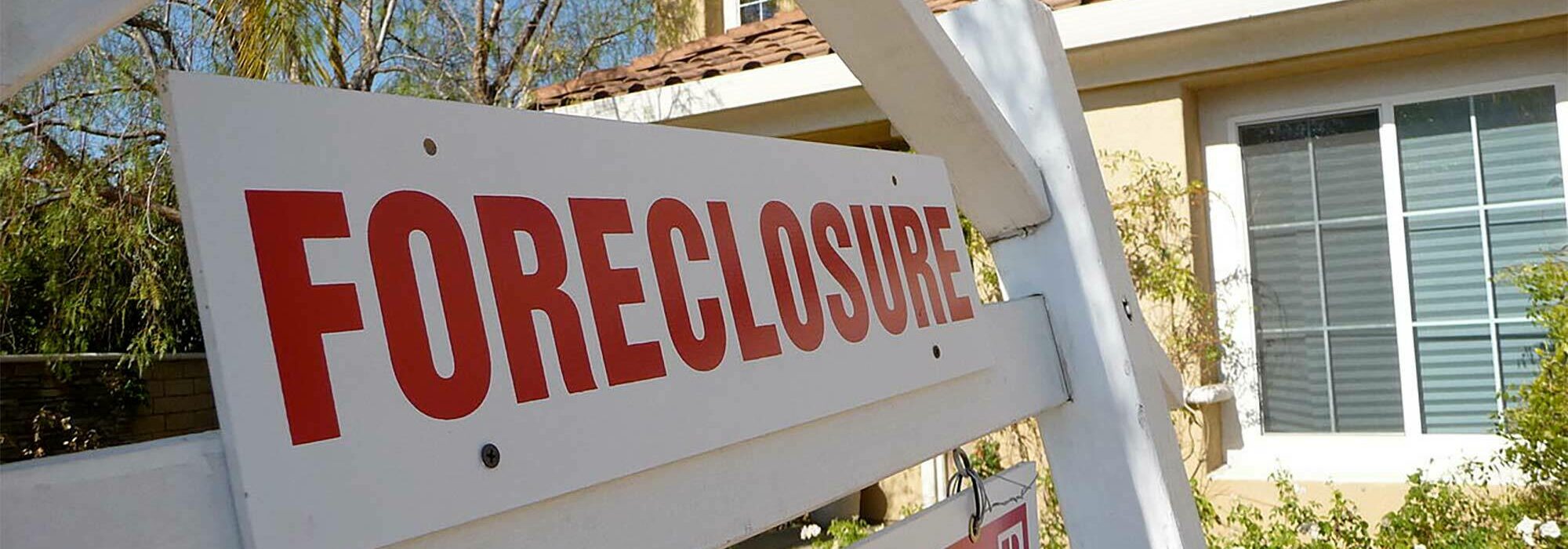Article Excerpt
Learn what it means to foreclose, what causes it, who does it, and what the process is from start to finish.
Owning real estate is a great investment that offers excellent returns. But it’s a serious responsibility, too.
If expenses aren’t paid, homeowners can lose their property in a process known as foreclosure. If you are thinking of buying a new home in Texas, or a rental property or other investment property, you should understand the importance of keeping up with the expenses that, if not paid, could result in foreclosure.
What does foreclosure mean?
Foreclosure is the process of taking possession of someone’s property and, in most cases, selling it to cover a debt.
When you become a homeowner by using a mortgage loan, you own the house outright. However, if monthly mortgage payments fall too far behind, your mortgage lender has the right to take the home from you. Your home is used as “collateral.”
Collateral is something pledged as security for repayment of a loan, to be forfeited in the event of a default.

Evander Holyfield faced foreclosure on this incredible 109-room, 200-acre estate in Atlanta, Georgia. The property is now occupied by rapper Rick Ross. Image credit: AJC.
What causes a foreclosure?
The simple answer: Foreclosures are caused by not paying monthly mortgage payments. This is called “default”. The reason for failing to pay is usually not considered.
A lender must notify the homeowner before they intend to foreclose so there is an opportunity to explain the reason for a default and get caught up on payments. A lender may prefer to get paid instead of going through the expense and effort of foreclosure.
Who forecloses on a home?
The simple answer: Mortgage lenders, county governments, and even HOAs have the authority to foreclose on a home.
Foreclosing on a property requires legal authority. The following entities have the lawful authority to foreclose:
Mortgage lenders can foreclose for failing to make payments.
County government can foreclose for non-payment of property taxes.
(HOA) can foreclose for non-payment of assessments, or for excessive breaches of a community’s Covenants, Conditions, and Restrictions (CC&Rs)
Two Types of Foreclosure
Non-judicial Foreclosures
A non-judicial foreclosure is one that may proceed without involvement from a court of law. They’re the more common type for homeowners using a mortgage.
The right to foreclose on a property (without court orders) comes from a document called the deed of trust. It pledges the property as collateral for the loan. Homeowners sign the deed of trust before finalizing their home purchase.
The deed of trust usually includes a “power of sale” clause. This allows the lender to foreclose without going through the courts as long as they follow procedures set out by state law.
Judicial Foreclosures
Some foreclosures require court orders. They proceed like other lawsuits which require service of process and other formalities. These include:
Home equity loans
Property taxes
HOA assessments

Nicholas Cage faced foreclosure on this Bel Air mansion. Image credit: World of Architecture.
The Foreclosure Process
Texas law sets procedures and timelines which mortgage lenders must follow in non-judicial foreclosures.
Step 1: Notifying the Homeowner
Loan “Acceleration”
A lender must notify the borrower/property owner that they are in default. Most loan agreements give the lender the right to demand payment of the entire remaining balance once a borrower defaults. This is known as “acceleration.”
The Written Notice
Under state law, a lender must send a written notice of both the borrower’s default and the lender’s intent to accelerate the loan. This notice must go to the borrower’s last-known address. It gives the borrower an opportunity to make any and all missed payments, known as “curing the default.” It states the amount needed to cure the default, and gives a due date at least twenty days out.
Step 2: Notice of Sale
If the borrower does not cure the default by the deadline, the lender must send a notice of sale to the last-known address by certified mail. The notice must state where and when the sale will occur. The lender must also post a copy of the notice at the courthouse in the county where the property is located.
Protections for Active-Duty Military
The Servicemembers Civil Relief Act protects active-duty military personnel from legal proceedings that might occur in their absence, including non-judicial foreclosures. A notice of sale must therefore include information on how servicemembers can notify the lender about their active-duty status.
Step 3: The Foreclosure Sale
Non-judicial foreclosure sales typically take place “on the courthouse steps.” The trustee named in the deed of trust, or a designated successor trustee, will conduct an auction to sell the property to the highest bidder. The mortgage lender can bid on the property, but cannot receive any favorable treatment from the trustee.

Find out more about buying a home.
Whether you’re an investor or a first-time homebuyer, the Wood Group of Fairway is here to answer your questions. Get started on an easy pre-approval now or contact one of our offices.



